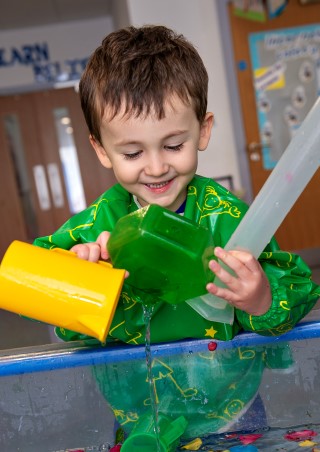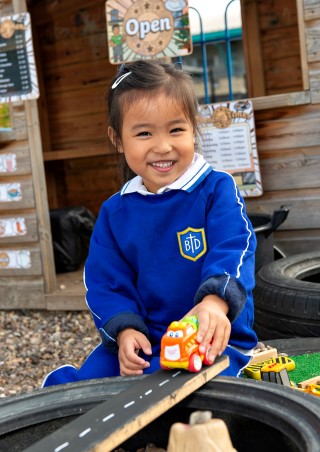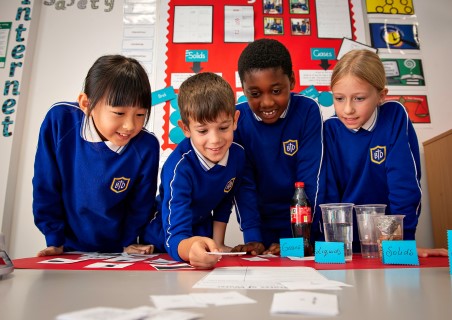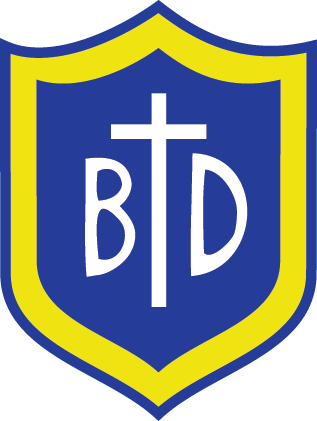Science
Science Vision
At Blessed Dominic Catholic Primary School, our vision for Science is to foster a love for learning and to develop scientific understanding for our pupils. We provide a dynamic and engaging science curriculum that is aligned with the National Curriculum, allowing pupils to explore and understand the natural world around them. Through hands-on experiments, observations, and scientific enquiries, we encourage critical thinking skills, problem-solving abilities, and a deep appreciation for the wonders of science. Grounded in our Catholic values, our aim is to nurture the natural curiosity of our children, encouraging them to ask questions, make predictions, and develop their scientific skills to become confident and informed thinkers in an ever-changing world.
We ensure that all children are provided with rich learning experiences that aim to:
- Prepare our children for life in an increasingly scientific and technological world today and in the future.
- Help our children acquire a growing understanding of the nature, processes and methods of scientific ideas.
- Help develop and extend our children’s scientific concept of their world.
- Build on our children’s natural curiosity and developing a scientific approach to problems whilst exposing children to the wonders of learning.
- Encouraging open-mindedness, self-assessment, perseverance, resilience and developing the skills of investigation – including: observing, measuring, predicting, hypothesising, experimenting, communicating, interpreting, explaining and evaluating.
- Develop the use of scientific language, recording and techniques.
- Learn about inspirational scientists who have development scientific learning and key knowledge.
- Support children through adapted work scaffolded to meet their needs alongside challenging and extending learners through the use of thought provoking questions.
Characteristics of a Scientist
At Blessed Dominic Catholic Primary School, we are Scientists. We have…
- the ability to think independently and raise questions about working scientifically and the knowledge and skills that it brings.
- confidence and competence in the full range of practical skills, taking the initiative in, for example, planning and carrying out scientific investigations.
- excellent scientific knowledge and understanding which is demonstrated in written and verbal explanations, solving challenging problems and reporting scientific findings.
- high levels of originality, imagination or innovation in the application of skills.
- the ability to undertake practical work in a variety of contexts, including fieldwork.
- a passion for science and its application in past, present and future technologies.



What does this look like at Blessed Dominic Catholic Primary School in…
Pupils should experience and observe phenomena, looking more closely at the natural and humanly-constructed world around them. They should be encouraged to be curious and ask questions about what they notice. Pupils should be helped to develop their understanding of scientific ideas by using different types of scientific enquiry to answer their own questions, including observing changes over a period of time, noticing patterns, grouping and classifying things, carrying out simple comparative tests, and finding things out using secondary sources of information. They should begin to use simple scientific language to talk about what they have found out and communicate their ideas to a range of audiences in a variety of ways. Children will be encouraged to work scientifically using the science skills. Investigations will be purposeful and relevant and will include skills relatable and relevant to life.
Pupils should broaden their scientific view of the world around them. They should do this through exploring, talking about, testing and developing ideas about everyday phenomena and the relationships between living things and familiar environments, and by beginning to develop their ideas about functions, relationships and interactions. They should ask their own questions about what they observe and make some decisions about which types of scientific enquiry are likely to be the best ways of answering them, including observing changes over time, noticing patterns, grouping and classifying things, carrying out simple comparative and fair tests and finding things out using secondary sources of information.
Pupils should be taught the Programme of Study through exciting lessons which engage and engross pupils so that they absorb the learning and retain it. Teachers are encouraged to teach science through enquiries and investigations to ensure children are able to apply their scientific knowledge practically.
Whole school events, such as Science Week allow for the children to feel a sense of unity in the school and is a good way of showcasing pupils work, but also showing the progression of skills throughout the school. Trips will be organised to allow for further exploration of scientific topics e.g. Science Museum, Greenwich Observatory, London Transport Museum.
Teachers are encouraged to make links with other areas of the curriculum so that the scientific learning can be embedded and pupils are immersed in their learning. Good scientific knowledge also allows pupils access the opportunity to participate in other areas such as Technology, Engineering and Mathematics and be involved in STEM events.
Planning will be informed using the children’s science capital interests whilst taking account of the Plan Assessment documents to ensure prior knowledge and future learning is taken into account. End of topic assessments will take place consistently using Sciencebug assessments. Teachers will monitor children’s assessment as well as use teacher judgement to identify any learning gaps.
Children will be challenged through learning by questions, appropriate and rigorous differentiation, exposure and opportunities to use scientific vocabulary. Planning will be between parallel teachers and across the phase.
Impact
Children are developing a richer vocabulary which will enable to articulate their understanding of taught concepts. Children are enthusiastic about science in our school and are keen to share their science journey with others and this is displayed through pupil voice.
Regular book looks will demonstrate that children’s work shows a range of topics and evidence of the curriculum coverage for all science topics. Feedback from teachers has an impact on our pupils, often with next step questions to push learning on.
Children are becoming increasingly independent in science, selecting their own tools and materials, completing pupil lead investigations and choosing their own strategies for recording.
Children enjoy and are enthusiastic about science in our school. Children have high aspirations, which will see them through to further study, work and a successful adult life.
